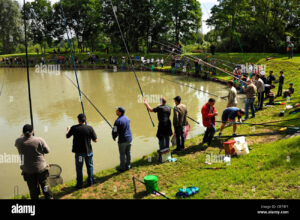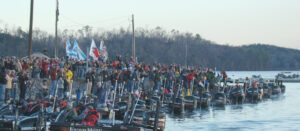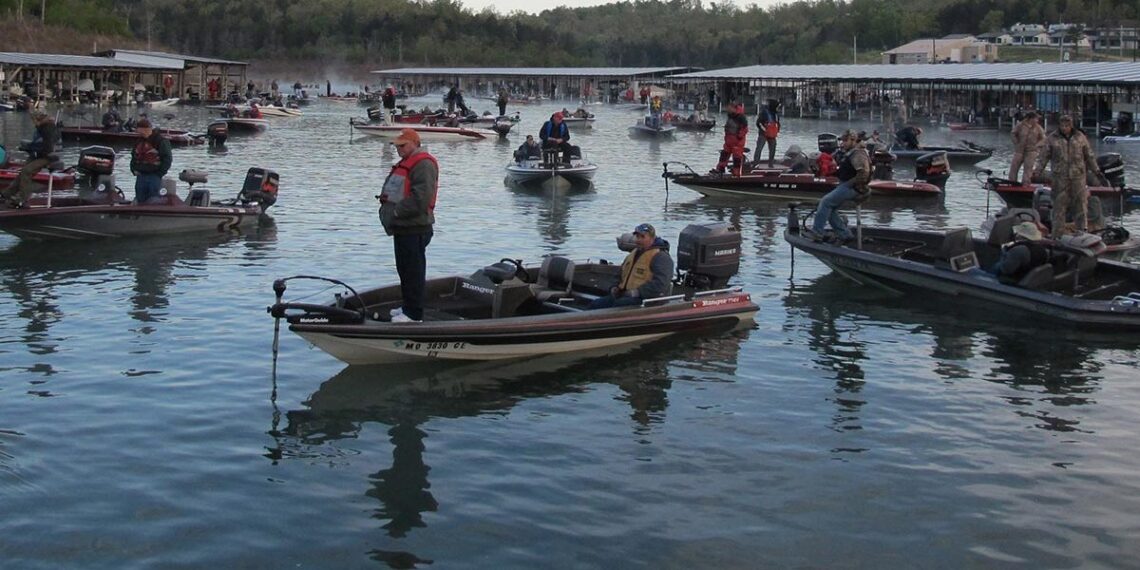Fishing tournaments have become increasingly popular over the years, attracting both avid anglers and casual fishermen alike. If you’re interested in organizing a successful fishing tournament in 2023, there are several key steps you can take to ensure that the event is well-organized, enjoyable, and safe for all participants.
Successful Fishing Tournament
Determine the Purpose and Scope of the Tournament
The first step in organizing a fishing tournament is to determine its purpose and scope. Is it a recreational tournament designed to bring together local fishermen for a day of fun and competition, or is it a more serious event aimed at attracting professional anglers and offering significant prizes? Consider the target audience for your tournament, as well as the type of fishing that will be featured, such as freshwater or saltwater fishing, fly-fishing or conventional tackle, catch-and-release or weigh-in tournaments.

Choose the Right Venue
Once you’ve determined the purpose and scope of your tournament, it’s time to choose the right venue. Look for a location that has plenty of fish and is easily accessible for participants. You’ll also want to ensure that the venue has appropriate facilities, such as a dock or boat ramp for launching boats, restrooms, and parking for participants and spectators.
Establish Rules and Regulations
Every fishing tournament needs to have clearly established rules and regulations to ensure fair play and safety. These rules should cover everything from fishing methods and equipment to catch limits and scoring procedures. Make sure that all participants are aware of the rules and regulations, and provide a copy to each team captain or individual angler.
Set a Date and Time
Choosing the right date and time for your tournament is critical to its success. Avoid scheduling your event on major holidays or during peak fishing seasons, as this can result in overcrowding and a lack of available resources. Make sure to give participants plenty of notice so they can plan accordingly, and consider factors such as weather conditions and tides when choosing the date and time.
Obtain Permits and Insurance
Before you can host your fishing tournament, you’ll need to obtain the necessary permits and insurance. This may include permits from state or local authorities, as well as liability insurance to protect against accidents or injuries during the event. Make sure to check with local authorities to ensure that you have all the necessary permits and paperwork in order.
Recruit Sponsors and Volunteers
Recruiting sponsors and volunteers can help to make your fishing tournament a success. Sponsors can provide financial support or donate prizes for the event, while volunteers can help with tasks such as registration, weigh-ins, and event coordination. Reach out to local businesses and organizations to see if they would be interested in sponsoring or volunteering for your tournament.
Market Your Event
Marketing is critical to the success of any fishing tournament. Use a variety of channels, such as social media, email newsletters, and local newspapers, to promote your event and attract participants. Consider offering early bird registration discounts or other incentives to encourage anglers to sign up early.
Coordinate Logistics
In the weeks leading up to your tournament, coordinate logistics such as boat rentals, food and beverage vendors, and transportation for participants. Make sure that all equipment and supplies are in place and that all volunteers and staff are familiar with their roles and responsibilities.
Host a Successful Event

On the day of your tournament, make sure that everything runs smoothly. Check in participants, provide any necessary equipment or supplies, and ensure that safety protocols are in place. Make sure that all participants are aware of the rules and regulations and that scoring procedures are clearly communicated. Finally, provide food and refreshments for participants and spectators, and hold an awards ceremony to recognize the winners.
Follow Up and Evaluate
After the tournament is over, it’s important to follow up with participants, sponsors, and volunteers to gather feedback and evaluate the success of the event. Send out a survey to participants to gather feedback on their experience, and thank sponsors and volunteers for their contributions. Use the feedback to identify areas for improvement and make adjustments for future tournaments.
Additionally, there are a few additional tips and considerations to keep in mind when organizing a fishing tournament:
- Ensure Safety: Safety should be a top priority when organizing a fishing tournament. Make sure that all participants are aware of any potential hazards or risks associated with the venue, such as strong currents or sharp rocks. Provide life jackets and other safety equipment as needed, and consider having a safety briefing before the tournament begins.
- Respect the Environment: Fishing tournaments can have an impact on the environment, so it’s important to take steps to minimize any negative effects. Make sure that all participants are aware of any rules or regulations regarding catch-and-release, and encourage the use of eco-friendly tackle and equipment.
- Consider Accessibility: Fishing tournaments should be accessible to all participants, regardless of their physical abilities or limitations. Make sure that the venue is wheelchair accessible and that accommodations are made for participants with visual or hearing impairments.
- Provide Clear Communication: Communication is key when organizing a fishing tournament. Make sure that all participants are aware of any changes to the schedule or rules, and provide clear instructions on how to register and participate in the event.
By keeping these tips and considerations in mind, you can create a fishing tournament that is safe, accessible, and enjoyable for all participants. With careful planning and attention to detail, you can make your fishing tournament a success and establish it as a must-attend event for anglers in the years to come.
In conclusion, organizing a successful fishing tournament requires careful planning, attention to detail, and a commitment to providing a safe and enjoyable experience for all participants. By following these steps and putting in the effort to coordinate logistics, recruit sponsors and volunteers, and promote your event, you can create a memorable and successful tournament that will attract participants and support for years to come.












